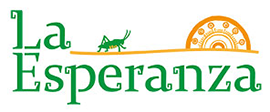During this Pride Month, we took the opportunity to sit down with our own Mary Jo Vazquez to discuss the significance of Pride Month as a celebration of authenticity, resilience, and love. This celebration encourages the embrace of diversity and opposition to discrimination. She shares about the vital role allies play in supporting the LGBTQ+ community through education, acceptance, and advocacy. Mary Jo also discusses personal challenges and triumphs, highlighting the importance of empathy and understanding.
Mary Jo is an accomplished professional and leader in community relations and public policy. She is La Esperanza’s Community Organizer.
What does Pride Month mean to you?
Pride is a celebration of authenticity, resilience and love. It’s about embracing diversity, standing up against discrimination, and fostering a sense of community. Honor those who fought and continue fighting for our rights as human beings.
What role do you think allies play in supporting the LGBTQ+ community?
Being an ally to the LGBTQ+ community is essential, and it involves continuous learning, reflection and action. Here are some ways to be a good ally:
Educate yourself: Learn about LGBTQ+ issues by talking to people who identify as LGBTQIA+, reading books, listening to podcasts, and visiting businesses or websites run by community members.
Show acceptance: Be accepting and open-minded. Show kindness and support, even when it feels unfamiliar or awkward.
Act: Advocate for LGBTQ+ rights, challenge discrimination, and stand up for others. Remember that allyship is a journey, not a one-time event.
I hope this is a starting point for a Latina organization to open doors to our community.
We need a Latino organization to embrace and acknowledge the challenges Latinos experience with coming out.
What challenges have you faced as an LGBTQ+ person, and how have you overcome them?
When I came out as a lesbian, my mother and father felt I was going against their Catholic religion, and they had done something wrong. Fortunately, I had an excellent relationship with my brothers and sisters, and they accepted me and allowed me to be around my nephews and nieces. It took my parents around two years to accept me and my then-partner.
It was a process for everyone. At that time, I was obtaining my master’s degree, and that was a challenge, too. My parents had communicated to the president of the university, and I was subjected to a third-degree interview and told to stop my relationship with my partner. My partner and I decided to hide our relationship so we could graduate. This incident had a big meaning for me because my major was clinical psychology and it taught me to become more empathetic with others. This process improves my knowledge of people’s behaviors and allows me to connect with my patients, families and [other] people. My family embraced me and my wife today as a family unit. They invite us to family activities and acknowledge our marriage every day.
How has your identity shaped your experiences in life, positively and negatively?
The way I view my mistakes, or the negative aspect of this process, is there are no mistakes, all are learning experiences, and it is up to us to learn from them and not repeat the same behavior.
I am in my 70s, and I choose to be open about myself, even though a lot of people are afraid of understanding others’ lives and perceptions. I have been in therapy for many years to deal with [myself] and learn tools to deal with life.
As a 20-year breast cancer survivor, I worried for our community that experiences challenges with the medical field understanding our community. Here we have Delaware Breast Cancer Coalition [as our] allies.
What’s next for the LGBTQ+ community?
[We have] many allies but still need to continue educating parents and the community. Today we have more youth coming out, and because of the lack of education and resources, these youth become homeless, and they become a target for sex trafficking and sex workers.
My story highlights the importance of empathy and understanding, especially in the face of adversity. As a clinical psychology major, I gained academic knowledge and practical insights into human behavior. My ability to connect with patients, families and people in general is a testament to my strength and compassion.
Coming out is different for everyone, and it is a lifelong commitment. The most important thing is that you are not alone. Today there are helplines and allies. Here in Delaware, we have:
Sussex Pride: 302-265-4165
Camp Rehoboth: 302-227-5620
reports.hrc.org/coming-out-living-authentically-as-lgbtq-latine
